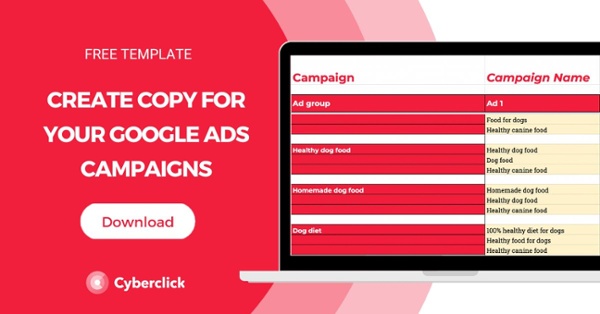Keywords can be divided into groups according to search intent, according to their composition, or according to their type of match.
Regardless of their typology, all keywords are important in an SEO strategy because they help Google understand what your content is about and identify it with the user's search intent. Ultimately, keywords are one of the factors that search engines take into account when positioning content in the SERPs.
In this article, we'll look at the different types of keywords and analyze how you can use them in your SEO strategy to achieve the best possible positioning.

Types of Keywords According to Search Intent
Search intent refers to the specific goal or purpose behind a user's internet search. Based on this, we can identify the following keywords.
Informational Keywords
An informational keyword is one that people use when posing questions to get specific information about a subject, either specific or general, without the intention of making a purchase. Examples include "how large is the Empire State Building" or "where do Siamese cats come from."
Navigational Keywords
A navigational keyword is a term users input into a search engine that includes the name of a specific brand. Typically, people using navigational keywords aim to access the website of that particular company. Clear examples include searches for names such as Nike, Zara, or Toyota.
Commercial Keywords
These are keywords that have a clear commercial intention. Users enter them into a search engine when they want to buy something. They could be things like "Le Creuset pan price" or "Specialty coffee brands". In this case, the user already knows the product they are interested in but would like to research it before buying.
Transactional Keywords
These are very similar to commercial keywords, but here there is a greater intention to purchase. "Second-hand cars for sale" or "nearest Italian restaurant" are good examples of transactional keywords.
You can differentiate them from commercial keyword because they usually contain words like "buy," "for sale," "discounted," or "subscription." Also, they are usually very specific and contain very specific data like "cheap black hiking sandals".
Types of Keywords According to Composition
A keyword can be generic and consist of one or a few words or it can be more specific and consist of several words. Let's take a closer look.
Short Tail Keywords
They are also referred to as generic keywords and are characterized by their concise composition. Examples include "hotels Rome" or "health insurance."
These keywords tend to be broad in scope, resulting in a higher number of search results and increased competition for ranking.
Long Tail Keywords
Long-tail keywords consist of three or more words, enabling users to refine their searches and get more specific results. Consequently, they narrow down the search, excluding a greater number of irrelevant pages compared to short tail keywords.
"Hotels in New York near Central Park" or "white anti-transpirant sports shirts" would be two good examples. In these cases, there is not as much competition.
Types of Keywords According to Match
This distinction is only useful when publishing ads on Google Ads. In fact, not considering this is one of the most common mistakes when designing ads on the platform.
Keyword matching refers to the extent of alignment between a user's query and a specific keyword. The selection of the matching degree during ad design determines when an advertisement will be displayed.
Broad Match
If when designing an ad you choose the broad match option, the advertisement will be displayed when the user's query includes both the established keyword and any of its variations, synonyms, or plurals. That is why they usually have many search results and also a lot of competition.
For example, if you have chosen the keyword "kitchen tables" with this matching, your ad will also be displayed when the user searches for "white marble kitchen table" or "2-meter long kitchen tables".
Phrase Match
In this case, your ad will only be displayed to users who have entered a keyword that includes the same words and in the same order as you when choosing the keyword.
It is similar to broad match but is slightly more restrictive because it does not accept synonyms, plurals, or changes in the order of words.
Exact Match
In this case, your ad will only be shown to the user who has entered the exact keyword you want to position your ad for in the search engine.
Negative Match
When designing an ad on Google, you can choose the keywords you do not want your pages to appear for because you believe that those who search for them will not really be interested in your product.
For example, imagine that you sell suits, but you do not want users interested in "diving suits" to reach your page. These would then be your chosen negative keywords.
How to Use Each Type of Keyword in Your SEO Strategy
- Informational: It's helpful to use them to attract potential customers who are still in the widest part of the sales funnel.
- Navigational: Ideal for well-known brands that want to continue maintaining their organic traffic.
- Commercial: These usually work very well in review articles or when comparing different products.
- Transactional: These are very useful for an SEO strategy aimed at getting potential customers who are in the narrowest part of the sales funnel to finally convert. They are good in paid ads, product pages, and for physical stores.
- Broad match and short tail: Also very useful for potential customers who are still in the wider part of the funnel.
- Exact match, phrase match, and long tail: Perfect for reaching a very specific audience.
- Negative match: Good to include for ads and when you do not want to receive traffic from specific users.

Inbound Marketing Strategist en Cyberclick. Graduada en Publicidad y Relaciones Públicas por la UPF. Responsable de la estrategia de inbound marketing, creación de contenidos digitales y posicionamiento web. Gestión del CRM con la herramienta HubSpot.
Inbound Marketing Strategist at Cyberclick. Helena holds a degree in Advertising and Public Relations from UPF. She specializes in inbound marketing campaigns, digital content creation and web positioning, with experience in CRM management and HubSpot.





Leave your comment and join the conversation